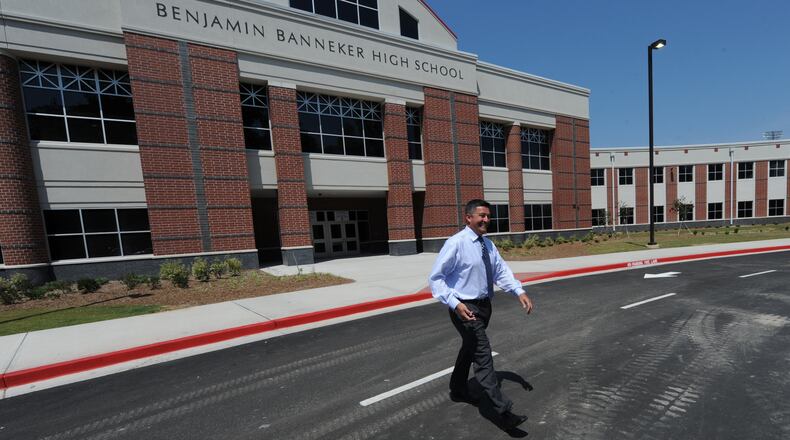Fulton County Schools had the largest increase in the number of “chronically failing” schools in metro Atlanta, with six added to the latest list and two removed, for a net increase of four.
Only Chatham County, whose list grew by six schools, had more.
Georgia voters may have rejected a constitutional amendment that would have established punitive measures for schools that repeatedly fail on state measures, but state leaders are still updating that list.
Fulton's new schools on it, according to a comparison of the new list and the old, are:
1. Hapeville Charter Middle School,
2. Love T. Nolan Elementary School,
3. Paul D. West Middle School,
4. Renaissance Middle School,
5. S.L. Lewis Elementary School and
6. Tri-Cities High School.
Fulton said it is addressing the “complex challenges” in those schools with central office staff from multiple departments who meet with the schools, examine their student data and help solve problems. For instance, one school had several students who were causing distractions, so the support team assigned behavioral specialists to work on it, a resource the school might not otherwise have accessed.
The new chronically failing schools join eight that were on the list the prior year: Asa Hilliard Elementary School (formerly known as Mount Olive Elementary), Banneker High School, Feldwood Elementary School, Hamilton E. Holmes Elementary School, Heritage Elementary School, McNair Middle School, Parklane Elementary School and Woodland Middle School.
The two schools removed from the list were:
1. Creekside High School and
2. Liberty Point Elementary School.
Creekside eked out a non-failing score of 60.3 on the College and Career Ready Performance Index, the state schools report card. Liberty Point saw huge gains, earning a score of 69.3, up more than 10 points from the prior year.
The Governor's Office of Student Achievement determined that a score below 60 is failing. Under Georgia law, a school that fails three years in a row is labeled "chronically failing." The agency recently reported that the statewide list of chronic failures grew to 153 schools from 127 in 2015, with 13 removed and 48 added.
The list remains relevant despite the outcome of the November referendum because Gov. Nathan Deal and top lawmakers say fixing failing schools remains a priority. They are vowing action during the current legislative session, despite criticism of the state's comparatively "tougher" method of defining academic failure.
About the Author
Keep Reading
The Latest
Featured



